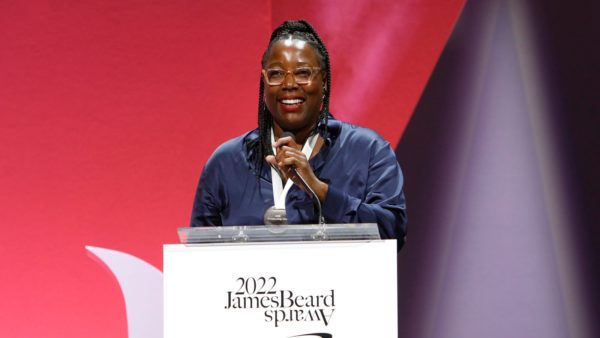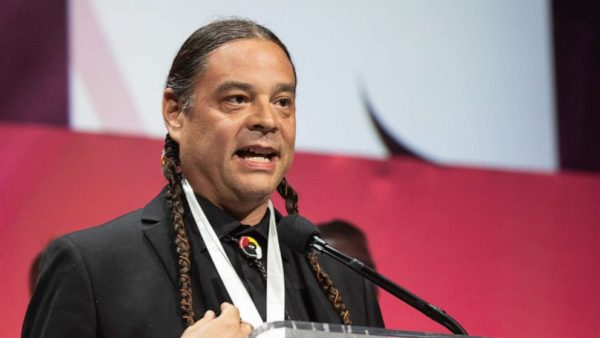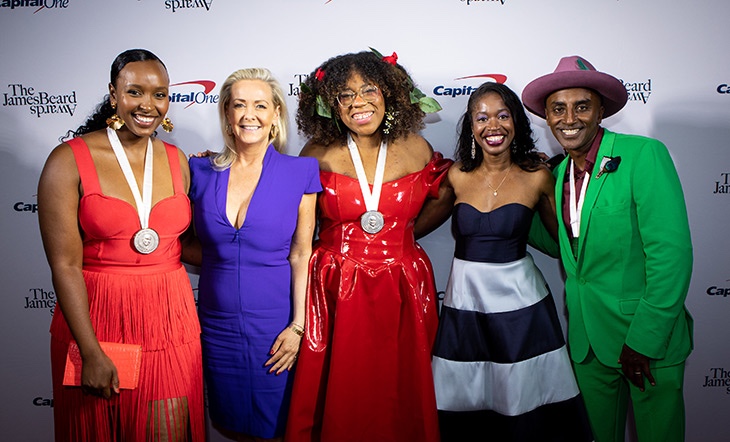In 2004, I’m a little embarrassed to say, I went to the AVN Awards in Las Vegas. To those unfamiliar, it’s the Academy Awards of the porn industry. Yes, I said porn. Don’t judge. Though I’m certainly no novelist, I had an idea for a novel at the time that involved a road trip and a porn star, so I took a week off my restaurant job to find some inspiration on the road. I hopped on a dingy Greyhound bus with a notebook and traveled across the country, culminating with my walking the red carpet at the Porn Oscars. (Spoiler Alert: I still haven’t published a novel.)
The experience inside the auditorium at the AVNs was not at all what I expected. Though the categories were almost laughably raunchy and uncomfortably specific, no matter who won, the acceptance speeches almost always centered around the commitment to producing excellent work. The seriousness with which the winners spoke about the craft of working in adult entertainment left me feeling differently about pornographic films and the people who make them.
I thought of my trip to the AVNs this week when I attended the James Beard Awards at the Lyric Opera in Chicago. Restaurants have also become a form of entertainment that requires an enormous amount of self-abasement from the people who perform in them—not all so different from porn, to be candid. (Full disclosure: I served on this year’s Awards committee for Restaurant and Chefs for the first time.) As a restaurant worker for two decades, I always feel at home in a room full of restaurant people but, on this particular night, it felt more like the room where it happened.
As an attendee, I’d like to share a few observations—independent of my work on the Awards Committee—because the feeling in the theater on Monday is something we should be working tirelessly to recreate going forward.
The talk on stage of improving our industry may not necessarily have been new, but the voices on stage certainly were. The years of the James Beard Awards marginalizing chefs of color gave many of these statements a nervy quality that felt like a pressured champagne bottle being uncorked with a quick rip. Notable chefs, like Cristina Martinez of South Philly Barbacao in Philadelphia who won for Best Chef Mid-Atlantic, delivered a portion or all of their acceptance speeches in languages other than English.
Martinez, who is openly undocumented and a champion for the rights of undocumented immigrants, spoke slowly and carefully about the immigrant labor that fuels restaurants across America. You didn’t need to understand a word of Spanish to follow her speech. Others, like Mashama Bailey, who won the national award for Oustanding Chef, highlighted the importance of diversity while being among the few women and chefs of color who had ever won a national Beard. “Today a little Black girl or a little Black boy can see themselves as a future Outstanding Chef,” Bailey told the audience.

By the middle of the presentation, the elephant in the room was stampeding down the aisles, letting out piercing wails with its tusks rearing skyward. Alerts on our phones announced a tornado warning outside, borne from a fleeting but violent storm that seemed to come out of nowhere. Emergency notifications buzzed like angry locusts throughout the theater as the lights came down. The two events didn’t feel coincidental at all. A storm was brewing inside, too.
Despite the innumerable challenges of the past few years that have decimated the restaurant industry, winner after winner stood tall and spoke proudly of their perseverance. They stressed the importance of improving the work environment for their employees, addressing endemic abuse in the kitchen, acknowledging immigrant labor, and ameliorating longstanding racial and gender imbalances.
What I saw, however imperfect (as all awards programs inherently are), points to the potential future of what culinary recognition can look like. In the past, I’ve been a vocal critic of the JBF Awards and have argued that the gratuitous pageantry undermines the important work of chefs by turning a supportive community into a competitive one.
But with a more mindful charter and the stewardship of a more diverse community of people committed to deliberating mindfully, medals should end up around more deserving necks. Chefs like Erick Williams of Virtue in Chicago, who spoke eloquently after winning the award for Best Chef: Great Lakes of the many great Black chefs before him that the James Beard Awards have ignored. “I didn’t get here of myself or by myself, “ Williams said, “I got here by way of my community, by way of my culture, by way of my family, by the way of many trailblazers that were looked over, that were discarded and that were discounted. That allowed me to have a path … and the confidence to produce food day in and day out that feeds the mind, heart, spirit, and soul.”
There were other moments that felt like unchartered waters. Robynne Maii, the chef of Fête in Oahu—who seemed to glide onto the stage wearing a woven crown like the goddess Athena—won for Outstanding Chef Northwest. It was Hawaii’s first win in the regional category in nineteen years.

Owamni, the community-minded Minneapolis restaurant that celebrates indigenous cuisine, took home the Award for Best New Restaurant against much bigger names from much bigger cities. The night wasn’t without white winners, of course, but—at least this year—their wins felt somewhat deflating. We were happy for them, but maybe not quite as happy. If there were any gatekeepers present, they were having trouble finding their gates.
Perhaps the exception was Chris Bianco of Pizzeria Bianco in Phoenix, who was awarded Outstanding Restaurateur. Bianco was emotional, as we all were. He stammered a bit, struggling to find the right words to describe how it felt to be a part of an industry he so deeply loves. “I started a pizzeria in 1988,” Bianco said, “I didn’t know what the fuck I was doing then, and I don’t know what I’m doing now. But what I do know is that I’m grateful.”
He welled up as he introduced a Black colleague who joined him onstage and explained how this gentleman had started working with him twenty-five years ago, eventually becoming a partner in the business. As Bianco left the stage, the two embraced, and you could feel the brotherhood, earned over two decades of blood, sweat, and tears. It didn’t really matter what color any of us in the audience were. We all wanted more of these stories, and it felt good to celebrate so many different flavors that we knew were all delicious.


[…] the Beard awards feel a little different this year? Big change does not happen with platitudes. It takes work. Serena Maria Daniels, writing in […]